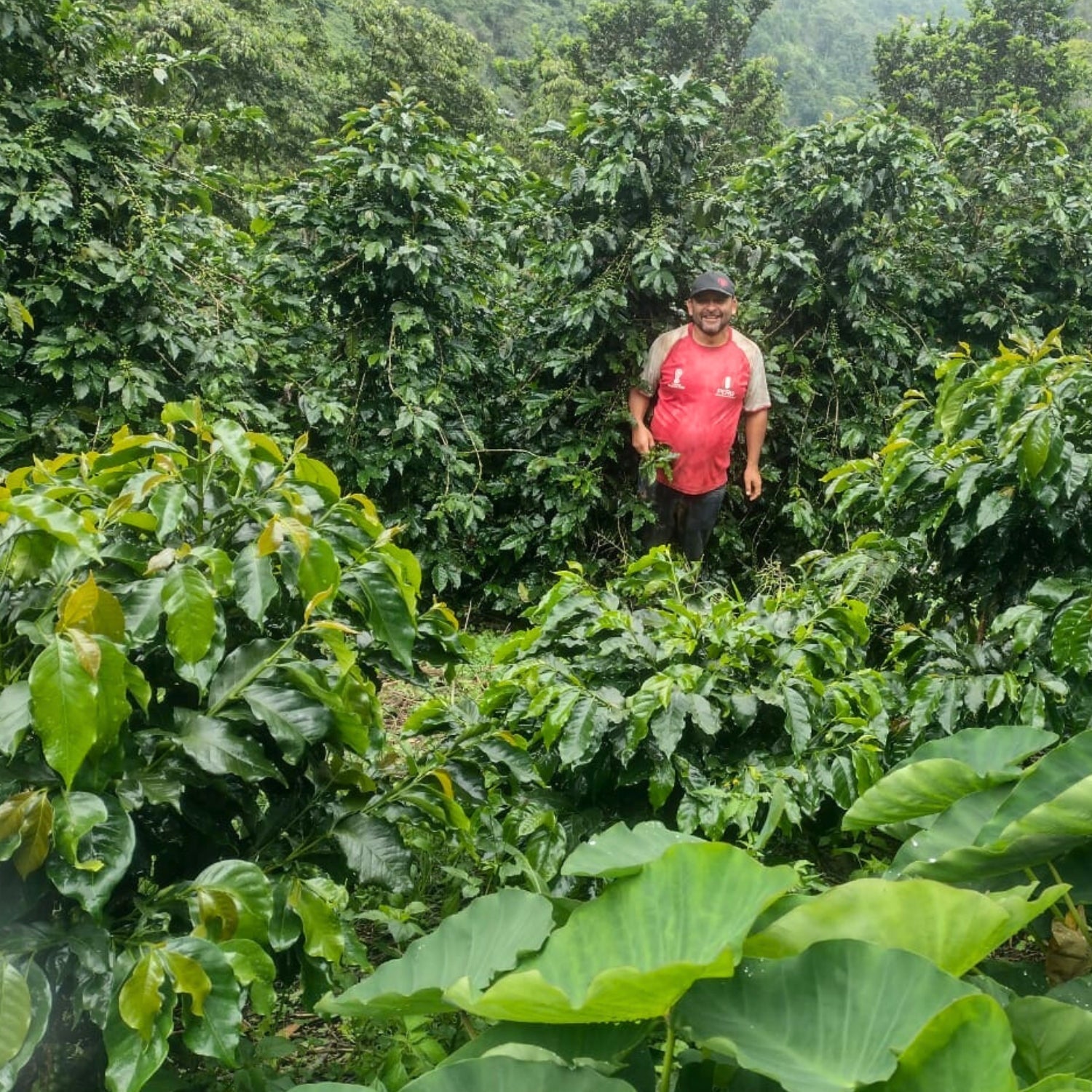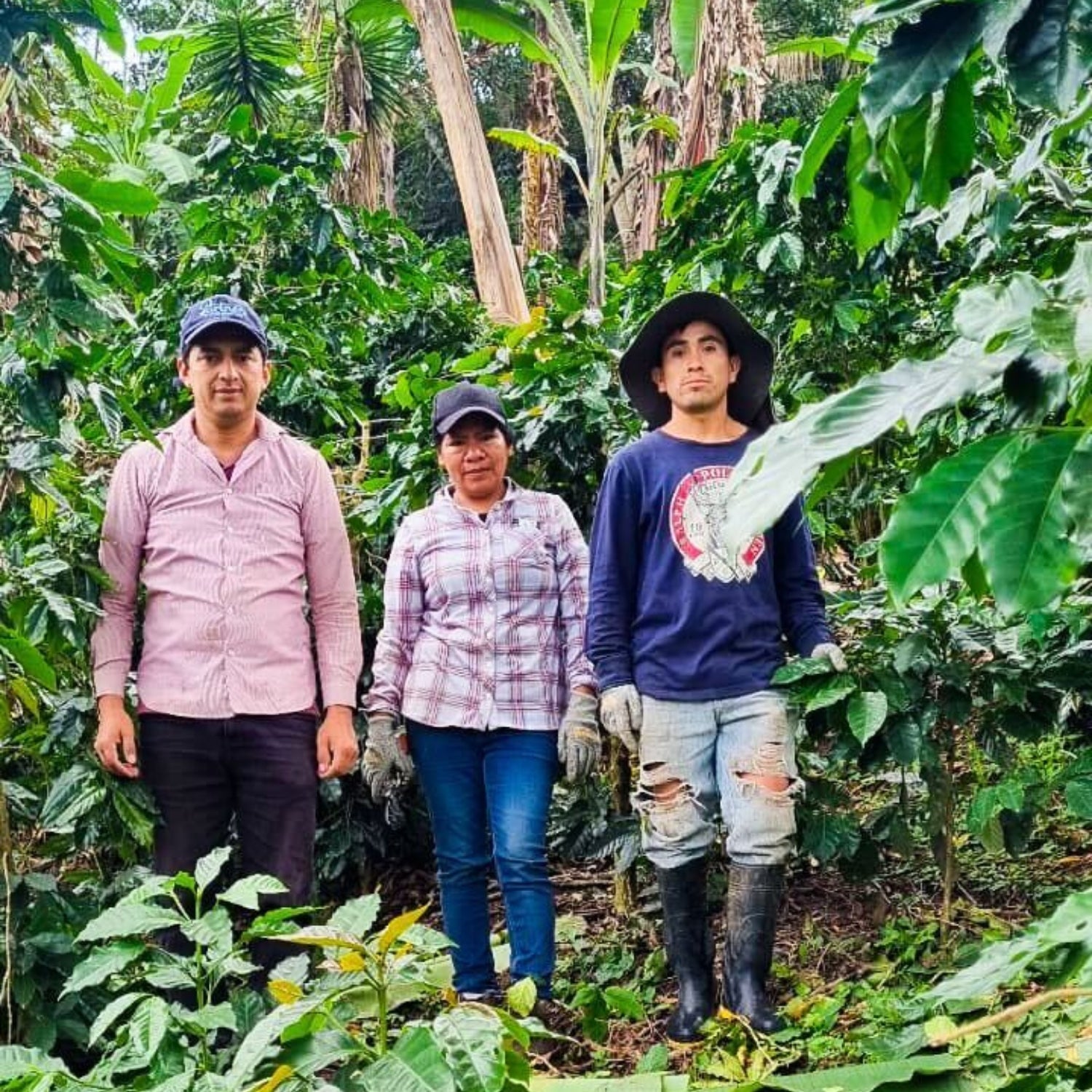We've partnered with the team at Cultivar Coffees as we've expanded our sourcing in Peru, particularly in the northern highlands of Cajamarca. This is our third harvest together and the culmination of four years working to build a strong, stable supply network focused on sustainable and organic farming practices.
Los Tulipanes is a honey processed coffee produced by Theadros Mellink and the team at Cultivar using early-season deliveries from some of their partner farms. Named for Calle Los Tulipanes ("tulip street"), where Cultivar's Jaén warehouse is located, it consists of coffees from two different areas, processed with similar fermentation strategies and were combined afterwards.
One component comes from Callayuc, Cutervo, where we've previously sourced coffee to make Elevate. Cutervo is known for its protected microclimates including cloud forests, moorland, and dry forests. This lot, from a community of small-scale producers, was held for 24 hours in closed plastic bags, depulped, and returned to plastic bags for an additional 48 hours of anoxic fermentation. The coffee was then removed from bags and spread in a layer approximately two inches tall for 72 hours to continue fermentation with exposure to air, being turned repeatedly. Finally, the coffee was further spread out and dried for 14 days on intermittent hours to avoid the peak hours of sun.
The other component is from the district of Hubal in the neighboring province of Jaén and consists of pickings from brothers Segundo and Levi Alarcon. Second generation coffee farmers, their farms are located in the community of La Unión. Their farms contain coffee intercropped with legumes and fruit trees like banana, guava, mango, and orange, creating a diverse agroecosystem where wildlife such as majaz and anteaters can also be found. In this case, their coffee was held for 24 hours in closed plastic bags, depulped, and returned to plastic bags for an additional 60 hours of anoxic fermentation. It was then removed from bags and spread in a layer approximately two inches tall for 96 hours to continue fermentation exposed to air, being turned repeatedly. Then, it was spread further to dry for 14 days on intermittent hours.
Though detailed and precise, this in simple terms is describing honey processed coffee, distinct in that the coffee's outermost layer of fruit is removed, but the remaining layer of sugary mucilage is not washed off of the coffee. In leaving that layer intact, additional fuel and nutrients are provided to the microbes that ferment the coffee (which contribute to delicious flavor—in almost any processing method!). Seen by many as a sort of halfway between washed and natural process coffees, this strategy sees some of the benefits of both—the heavier body and fruit character of a well-executed natural, but with more balance and clarity.
We're thrilled to be working with Cultivar Coffees again, and excited for what's in store in the future as we look towards the 2025 harvest season!








Leave a comment
This site is protected by hCaptcha and the hCaptcha Privacy Policy and Terms of Service apply.